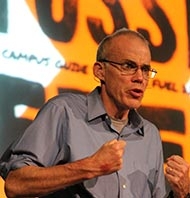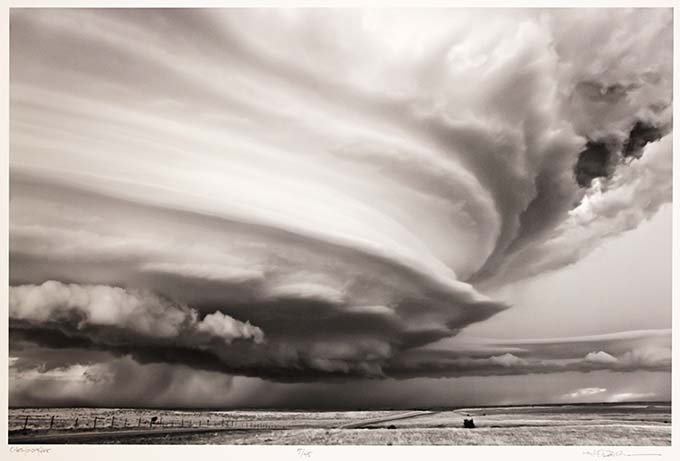Distinguished Scholar Bill McKibben to speak on Photography and Climate Change

Seeing the World as the First Step toward Saving It
October 12, 2017, 4:30 p.m., Robison Hall, Mahaney Center for the Arts
For immediate release: 9/19/17
For further information contact: Douglas Perkins, at deperkin@middlebury.edu or (802) 443-5235
Middlebury, VT—In conjunction with the exhibition Land & Lens: Photographers Envision the Environment, currently on view at the Middlebury College Museum of Art, best-selling author and environmental activist Bill McKibben will speak on Thursday, October 12 at 4:30 p.m. in the Robison Concert Hall of the Mahaney Center for the Arts, located on Route 30 on the southern edge of campus. McKibben’s talk, titled “Seeing the World as the First Step toward Saving It,” will focus on the ever-increasing amount of data about the environment that scientific instruments are making available to us today. From robotic cameras in space to ultraviolet light spectrometers on earth, scientists are gathering information about the earth’s changing atmosphere. As the exhibition in the Museum illustrates, such information can be simultaneously beautiful and terrifying. From this data McKibben expects us to draw some clues about how to protect our earth going forward, and his talk, which is free and open to the public, will explore how this primarily visual information can address and affect our concerns for the future.
Serving since 2010 as Schumann Distinguished Scholar and director of the Middlebury Fellowships in Environmental Journalism, McKibben is the author of a dozen books and founder of 350.org, the first international climate-change movement, which has organized rallies in 188 countries on every continent on earth. The End of Nature, McKibben’s 1989 best-selling book about global warming—the first for a general audience—has appeared in 24 languages. As a student at Harvard, McKibben edited The Harvard Crimson and went on to become a staff writer at The New Yorker. He writes frequently for The New York Review of Books, The New York Times, National Geographic, Rolling Stone, The Atlantic Monthly, Mother Jones, Harper’s, and Orion Magazine. Recipient of a Guggenheim Fellowship and the 2013 Gandhi Prize as well as the Sierra Club’s John Muir Award, last year he was honored by The Nation to give the inaugural Schell Memorial Lecture on the Fate of the Earth. He is regularly interviewed on national media.
McKibben’s most recent book, Oil and Honey: The Education of an Unlikely Activist, was published early this year. In June his introductory essay on Thoreau’s Walden appeared with his annotations of this seminal text in a new edition. In the same month he published the results of his extensive study of solar power in Africa in a provocative article in The New Yorker.
Land and Lens will remain on view through December 10 at the Middlebury College Museum of Art.
Press Image

Mitch Dobrowner (American, b. 1956), Chromosphere, Green Grass, South Dakota, 2012, archival pigment print, 13 1/4 x 20 inches. Collection of Middlebury College Museum of Art, purchase with funds provided by the Fine Arts Acquisition Fund, 2015.229.
The Middlebury College Museum of Art, located in the Kevin P. Mahaney ’84 Center for the Arts on Rte. 30 on the southern edge of campus, is free and open to the public Tues. through Fri. from 10 a.m. to 5 p.m., and Sat. and Sun. from noon to 5 p.m. It is closed Mondays. The museum is physically accessible. Parking is available in the Mahaney Center parking lot. For further information and to confirm dates and times of scheduled events, please call (802) 443–5007 or TTY (802) 443–3155, or visit the museum’s website at museum.middlebury.edu.
